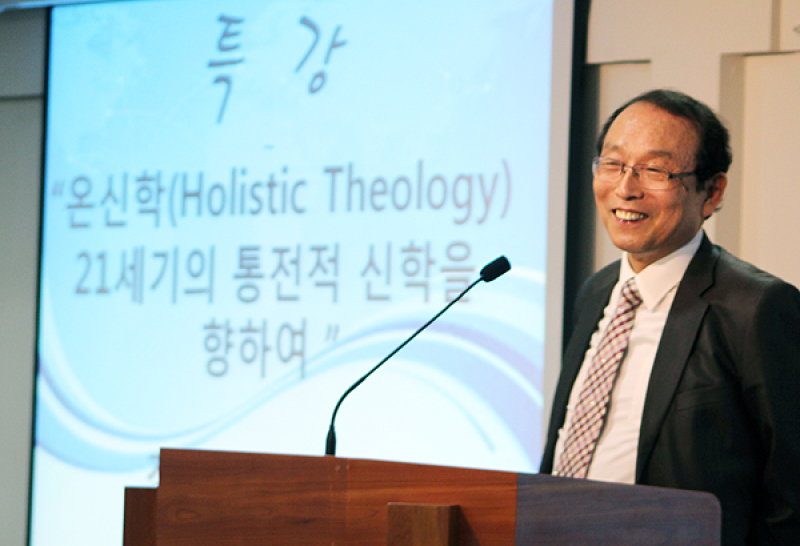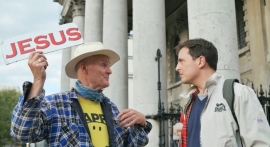

Dr. Myung-Yong Kim, the president of the Presbyterian University and Theological Seminary, shared his insights on 'holistic theology' at the February 4 seminar.
Dr. Myung-Yong Kim, the president of the Presbyterian University and Theological Seminary (PUTS), advocated that the 130 years of Korean Christian history has resulted in the fruit of a 'Holistic Theology,' and asked that the Korean immigrant church in the U.S. would join him in this theology.
At a seminar titled, "Holistic Theology: Moving towards a holistic theology for the 21st century," at the Presbyterian Theological Seminary in America (PTSA) on February 4, Dr. Kim first addressed the already established theologies. The current theologies in Europe have been highly influenced by the Enlightenment Era, and is a liberal theology that lacks a sense of the spiritual realm. In contrast, fundamentalist theologists bind themselves to their literal abiding by the Biblical text, and do not consider enough the cultural and historical implications. Dr. Kim said that process theology of the U.S. is "difficult for one to fully entrust his or her life to the Lord, though one can consider it as another way to understand the Lord," and regarding South America's liberation theology is "problematic in terms of its arguments for salvation and Christianity."
Dr. Kim then mentioned the situation of the Korean church. He said that the conservative theology of the Korean church is "very close to fundamentalism," and added, "Dr. Hyung-Ryong Park's theology is a theology of evangelism and salvation, but its emphasis on an individual's salvation causes one to lose sight of the salvation of society or of history."
He then discussed an important aspect of the theology of the Korean church, which is the pentecostal aspect. "I can't deny the fact that the methodology of pentacostalism can seem superstitious, but Pastor David Cho's 'Threefold Blessing' theology is one that combines both the problems of the soul and of the life here on earth," Kim said.
In that sense, 'holistic theology' could be an alternative that brings together the aspects of all of the previous theologies. Kim pointed out seven distinct characteristics of holistic theology. First, he mentioned the trinity. "At the forefront of Jesus' resurrection is God the Father, His Son Jesus Christ, and the Holy Spirit, and any theology that denies this trinity is no longer Christianity," he said.
Second, he said that this theology believes in God's sovereignty and grace. It is the Lord who saves, and gives grace unto people.
Third, he said that holistic theology considers the gospel as the way for the salvation of the soul, body, society, and history.
Fourth, Kim said that holistic theology is a theology of God's kingdom, and fifth, that it is an open, coversational theology in regards to the subjective work that the Holy Spirit has done in the people of various different cultures. However, he pointed out that "salvation is only in Jesus, and I reject religious pluralism."
Sixth, holistic theology is one of prayer. "With prayer, there will be answers and miracles in an individual's life as well as in society."
Finally, Dr. Kim said holistic theology is a theology of love. "Only love can fight and be victorious over Satan," he said.
"I hope that PTSA can join me in expanding this holistic theology," Dr. Kim said. "It's time for the Korean church to let the whole world know about the God that we have encountered."

















